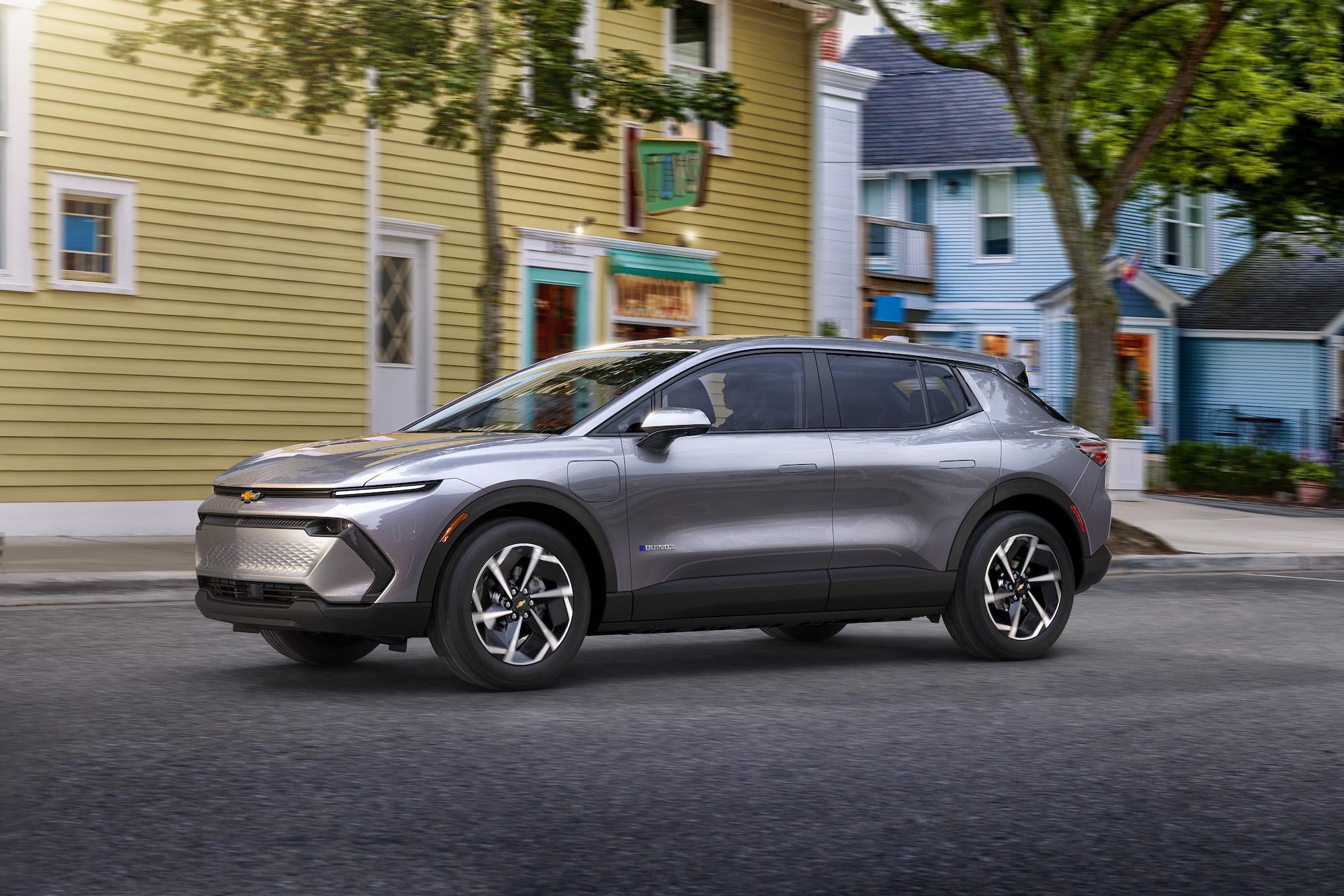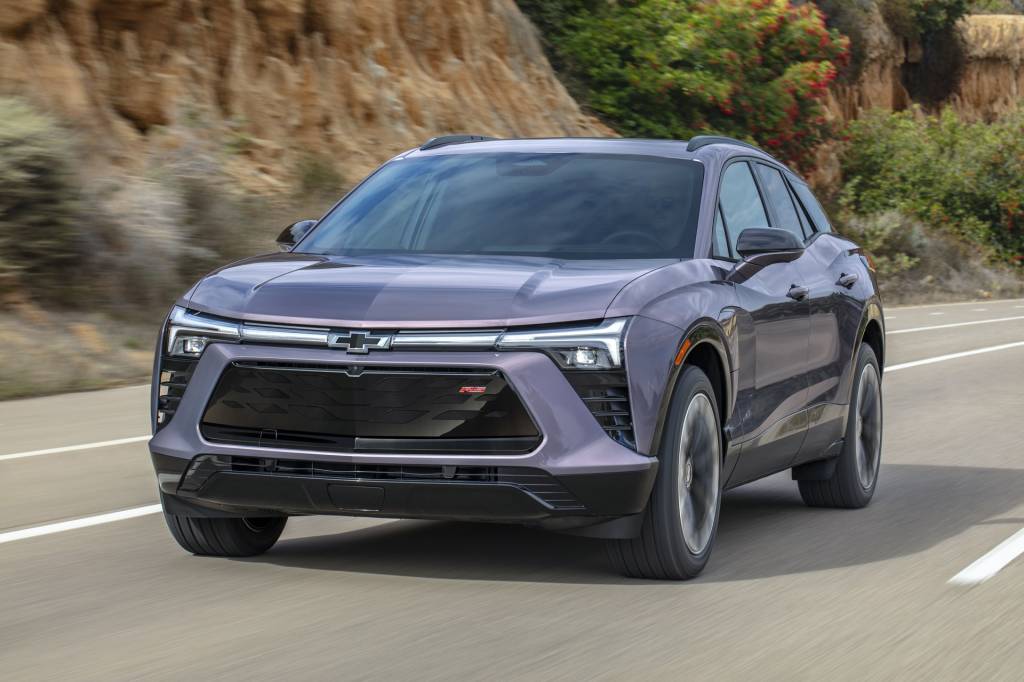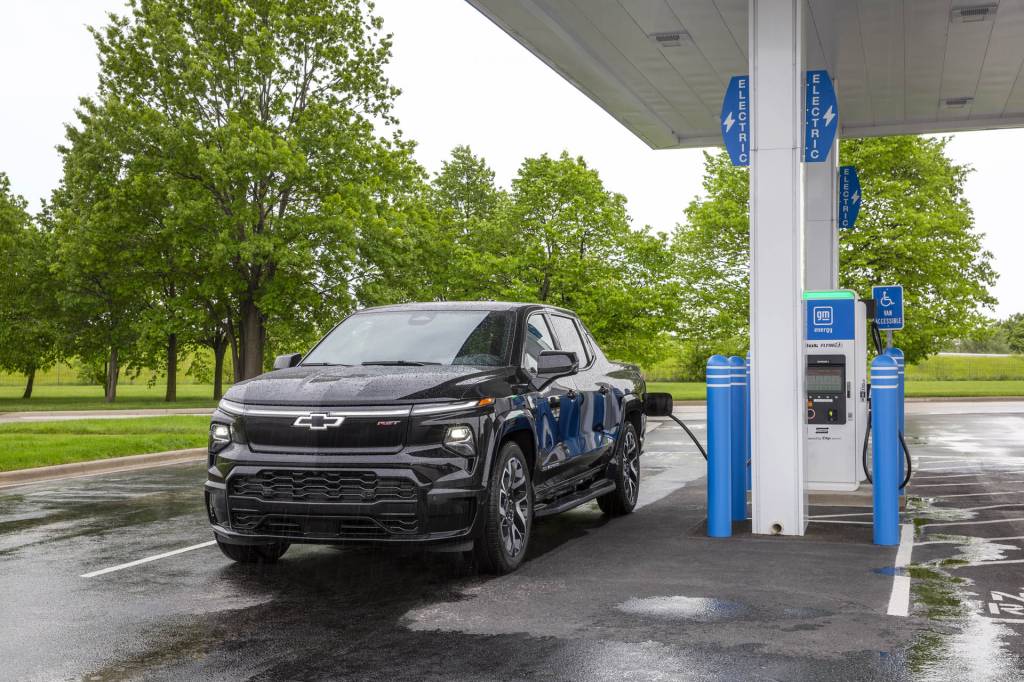

GM CEO backs away from 1M EV target, says market’s “not developing”
- GM announced in 2022 it could build 1M EVs annually in 2025
- It aimed to make 400,000 EVs over 2022 and 2023—later extended into 2024
- Backpedaling on both targets, CEO Barra now says an undeveloped EV market is to blame
General Motors CEO Mary Barra has walked back the automaker’s target of having production capacity for one million EVs in 2025, blaming slowing demand.
Barra told CNBC (via Bloomberg) at an event July 15 that GM wouldn’t have the planned production capacity in place by next year, adding that customer demand would determine how quickly GM would reach one million annual EV sales, and that it’s currently seeing a slowdown in EV deliveries.

2024 Chevrolet Blazer EV RS
“We won’t get to a million just because the market’s not developing, but it will get there,” Barra said.
U.S. EV deliveries were flat in the second quarter compared with the same period in 2023, but still up 11% from the first quarter, according to research firm Cox Automotive. But GM has also struggled more than other automakers to ramp up EV production.
While Wall Street doesn’t appear to be responding negatively to GM’s announcement, there may be some consequences in the company’s market position and environmental impact, whether actual or perceived.
“While GM backtracks on its commitment to delivering more electric vehicles, the company is leaving the market open to foreign companies to supply Americans with affordable EVs,” said Dan Becker, director of the Safe Climate Transport Campaign at the Center for Biological Diversity.

2024 Chevrolet Silverado EV
GM announced the one-million-EV goal in 2022, but struggled to accelerate EV production in the following year, due mostly to issues ramping up its Ultium battery cells. The automaker reported 21,390 EV deliveries in Q2 2024, up 34% from Q1 and 40% from the same period last year, indicating that it has turned a corner.
However, this pace meant GM was well off a goal of delivering 400,000 EVs in the first half of 2024, itself pushed back from 2023. And the discontinued Chevrolet Bolt EV outsold other Chevy EVs in the first half of this year, despite no longer being in production. So GM still has a long way to go with the Ultium ramp-up, which might be as much of an explanation of why it’s continuing to postpone EV targets as slowing demand.
Add a comment Cancel reply
Comments (0)
Related posts


Electric SUVs: Top 6 Models for Family Trips











